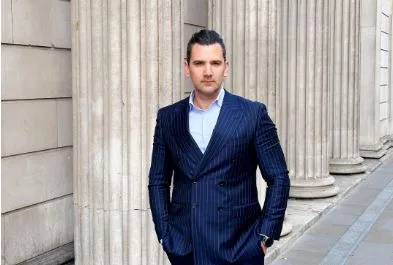Facing a Second Offense DUI in Nevada: What You Need to Know
Driving under the influence (DUI) is not taken lightly in the state of Nevada. A first-time DUI offense has severe consequences, but the stakes increase exponentially with subsequent offenses. A second offense DUI within seven years of the initial conviction can result in more serious criminal sanctions, stiffer fines, longer license revocations, and even jail time.
Understanding what a second DUI means for your future—and how to protect your legal rights—is essential. With the guidance of an experienced Nevada DUI defense attorney, individuals charged with a repeat offense can explore options to reduce penalties, safeguard their driving privileges, and pursue the best possible outcome.
Nevada’s DUI Laws: An Overview
Nevada law prohibits driving or being in actual physical control of a vehicle with:
A blood alcohol level (BAC) of 0.08% or greater for most motorists.
A BAC of 0.04% or greater for commercial motorists.
A BAC of 0.02% or greater for minors under 21.
You may also be charged with DUI if your BAC is lower than these thresholds if a police officer decides you are under the influence of alcohol or drugs.
For offenders who are repeat ones, the law is the most stringent. A second DUI offense within seven years of the first is more harshly treated than a first offense but is still a misdemeanor unless there are aggravating circumstances.
Nevada Penalties for Second Offense DUI
If you are convicted of a second offense DUI, you can expect the following penalties:
Jail Time: Minimum of 10 days in jail, up to six months possible. House arrest is possible instead of jail time in some courts.
Fines: $750 to $1,000, along with court fees and charges.
License Suspension: Suspension of your driver’s license for one year. You can request a restricted license after a portion of the suspension is served, but an ignition interlock device will probably be mandated.
Ignition Interlock Device: Installation of the device is required for at least one year after the restoration of driving privileges.
DUI School and Treatment Programs: Attendance at a DUI education class or substance abuse treatment program.
Community Service: Community service requirements may be ordered in addition to other punishments by courts.
These punishments can interfere with your personal and professional life, so it is important to take immediate legal action if you are arrested.
Long-Term Effects of a Second DUI
The effects of a second DUI conviction reach far beyond immediate consequences:
Work Problems: Most employers do background checks, and a DUI can impact job prospects, especially for occupations involving driving.
Insurance Rates: Car insurance rates will spike, and some companies will not insure you at all.
Professional Licensing: Some professions—commercial drivers, medical professionals, or those with security clearances—are at risk of losing their licenses.
Criminal Record: A DUI conviction stays on your criminal record, which could impact housing, education, and other aspects of your life.
Due to these long-term effects, note that a charge is different from a conviction. With effective legal defense, it is possible to reduce or eliminate these consequences.
Defenses Against a Second DUI Charge
Although DUI cases may seem straightforward, there are often multiple avenues for defense. An experienced attorney will carefully review the facts of your case to determine the best strategy, which may include:
Challenging the Traffic Stop: If police lacked reasonable suspicion to stop your vehicle, any evidence gathered may be inadmissible.
Questioning the Arrest Procedure: Failure to follow proper arrest protocols can weaken the prosecution’s case.
Breath Test and Blood Test Accuracy: Technical errors in testing instruments or procedures can result in faulty BAC readings.
Medical Conditions: Some medical conditions can simulate indicators of impairment or impact the results of breath testing.
Chain of Custody Problems: Contamination or mishandling of the blood sample can render evidence unusable.
Every case is different, and a customized defense can have a profound effect on the outcome.
Aggravating Factors in a Second DUI
Although the second DUI is generally a misdemeanor, under aggravating circumstances, it can become a felony with even greater penalties. Such aggravating factors may be as follows:
Driving while intoxicated and causing serious injury or death.
Having a child present in the vehicle during arrest.
Habituating extremely high BAC, which could result in increased sentencing.
Under these circumstances, the penalties are significantly greater, including jail time and large fines.
The Role of a DUI Defense Lawyer
It is daunting to go through the criminal justice system by yourself, particularly when charged with a second offense. A seasoned defense lawyer can:
Review and Investigate: Review police reports, test results, and witness statements for discrepancies or inaccuracies.
Negotiate with Prosecutors: Attempt to minimize charges or negotiate alternative sentencing.
Advocate in Court: Argue a vigorous defense in front of a judge and jury if the case is tried.
Protect Your Rights: See that constitutional safeguards, like against illegal searches and seizures, are preserved.
By getting legal representation, you can better protect against penalties and long-term loss to your personal and professional life.
Alternative Sentencing Options
Nevada courts will occasionally permit jail time alternatives, particularly if you show a willingness to work on underlying issues like alcohol addiction. Some possible options are:
House Arrest: Serving your time at home with intensive supervision.
Treatment Programs: Attending treatment programs instead of lengthy imprisonment.
Community Service: Serving a certain number of service hours instead of being in jail.
An attorney can make the case for these options based on your situation, possibly lowering the effect of the conviction on your daily routine.
Steps to Take After Being Charged
If you’ve been charged with a second offense DUI, it’s best to act fast:
Seek Out an Attorney Now: The earlier you see a DUI defense lawyer, the better your defense will be.
Request a DMV Hearing: You only have seven days from the time you were arrested to ask for a hearing to dispute your license suspension.
Collect Evidence: Get witness statements, medical reports, or other evidence that might support your case.
Adhere to Court Requirements: Show up for all hearings and obey court orders to prevent extra punishment.
Being proactive can greatly increase your chances of a positive result.
Conclusion
Second offense DUI in Nevada is a serious issue with harsh penalties and serious long-term implications. Still, a charge is not always a conviction. With the assistance of a qualified DUI defense attorney, you might be able to dispute the evidence, negotiate lighter penalties, and defend your future.
The proper legal approach could be the difference between a catastrophic conviction and a more palatable result. If you or someone you care about is dealing with a second DUI offense, acting right away is the single most crucial thing you can do to defend your rights and establish the strongest possible defense.





